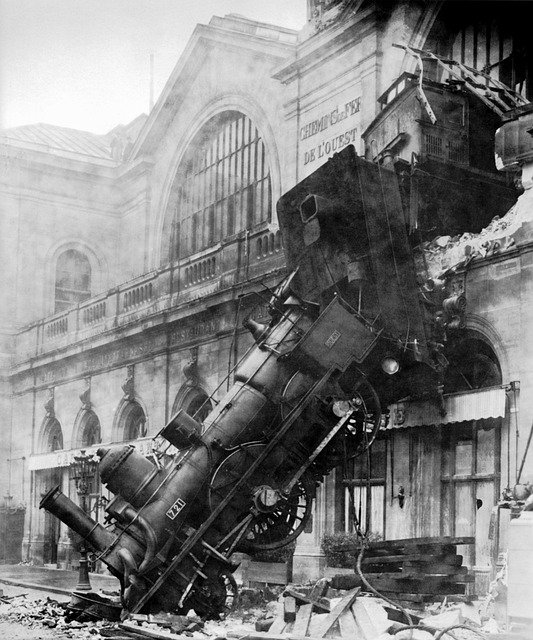In dynamic urban The Bronx, trucking companies must navigate complex liability challenges to thrive safely and compliantly. Key factors include understanding Federal (FMCSA) and New York State regulations covering driver hours, vehicle inspections, insurance, and local traffic rules. Common claims stem from driver negligence, collisions, and cargo issues. Best practices for risk mitigation involve comprehensive driver training, regular vehicle maintenance, ADAS adoption, and telematics utilization to enhance safety, prevent accidents, and ensure swift responses in this bustling logistics hub.
In the dynamic world of transportation, understanding trucking company liability in The Bronx is paramount. This urban hub presents unique challenges and opportunities for fleet operators, necessitating a deep dive into the legal framework and regulations governing trucking operations. This article explores common liability claims, delving into best practices to mitigate risks for Bronx-based companies navigating this complex landscape. By embracing proactive measures, local trucking firms can ensure safety, compliance, and prosperity.
- Understanding Trucking Company Liability in The Bronx
- Legal Framework and Regulations Governing Trucking Operations
- Common Types of Liability Claims Against Trucking Companies
- Mitigating Risks: Best Practices for The Bronx-Based Trucking Companies
Understanding Trucking Company Liability in The Bronx

In the vibrant and bustling city of The Bronx, navigating the complex landscape of trucking company liability is crucial for both businesses and individuals. Trucking companies operating within this diverse community face unique challenges due to the high volume of goods transportation and the varied urban terrain. Understanding their legal responsibilities is essential to ensure safety, compliance, and minimal risk.
The liability of a trucking company extends beyond the operation of its vehicles. It encompasses various aspects, including employee conduct, vehicle maintenance, load security, and adherence to local regulations. In The Bronx, where traffic congestion and narrow streets are common, companies must be particularly vigilant to prevent accidents and ensure their drivers adhere to strict safety protocols. Effective risk management strategies, regular training, and thorough pre-trip inspections are vital tools in mitigating potential liabilities.
Legal Framework and Regulations Governing Trucking Operations

The legal framework governing trucking operations in The Bronx, like anywhere else, is designed to ensure safety, fairness, and accountability. The Federal Motor Carrier Safety Administration (FMCSA) plays a pivotal role in regulating the industry across the United States. Key regulations include those related to driver hours of service, vehicle inspections, and hazardous material transportation, all aimed at minimizing risks associated with truck transportation. These rules are enforced through regular audits and strict penalties for non-compliance, underscoring the serious nature of trucking company liability in The Bronx and beyond.
New York State laws also contribute significantly to the regulatory landscape, with specific provisions addressing commercial vehicle operations within the state. These include requirements for insurance coverage, accident reporting, and local traffic regulations that trucking companies must adhere to. Understanding and complying with these legal frameworks is essential for any trucking company operating in The Bronx, as it directly impacts their liability and operational efficiency.
Common Types of Liability Claims Against Trucking Companies

In the dynamic landscape of logistics and transportation, Trucking Company Liability The Bronx is a critical aspect that every operator must navigate. The Bronx, with its bustling ports and extensive road network, sees a high volume of trucking activities, which inevitably increases the potential for liability claims. These range from accidents involving other vehicles and pedestrians to cargo damage or loss during transit.
Common types of liability claims include personal injury lawsuits arising from truck driver negligence, such as unsafe driving practices or fatigue. Property damage claims are also frequent, covering situations where trucks collide with other structures or vehicles, leading to significant material losses. Additionally, trucking companies may face legal repercussions for cargo-related issues like spoilage due to inadequate temperature control or misdelivery of goods, which can have far-reaching consequences, particularly in time-sensitive industries.
Mitigating Risks: Best Practices for The Bronx-Based Trucking Companies

Trucking companies operating in The Bronx face unique challenges due to the city’s dense urban environment and high traffic volumes. To mitigate risks, best practices should be implemented to ensure safety and liability management. One key strategy is to invest in comprehensive training programs for drivers, focusing on defensive driving techniques, local road conditions, and traffic regulations. Regular vehicle maintenance is another crucial step; scheduling routine checks can help identify potential hazards early, reducing the risk of accidents caused by mechanical failures.
Additionally, staying updated with the latest technology can significantly enhance safety. Implementing advanced driver-assistance systems (ADAS) like collision avoidance and lane-keeping assist can prevent accidents. Utilizing telematics for real-time tracking and monitoring of both drivers and vehicles allows companies to swiftly respond to issues and maintain a closer eye on safety protocols. By adopting these measures, Bronx-based trucking companies can actively contribute to reducing risks and fostering a safer transportation network.
Trucking companies operating in The Bronx face unique challenges and liabilities, necessitating a deep understanding of the local legal framework. By navigating these regulations and adopting best practices, businesses can mitigate risks associated with common liability claims. Awareness of their responsibilities and proactive measures to ensure safe operations are key to success in this competitive industry within The Bronx.
